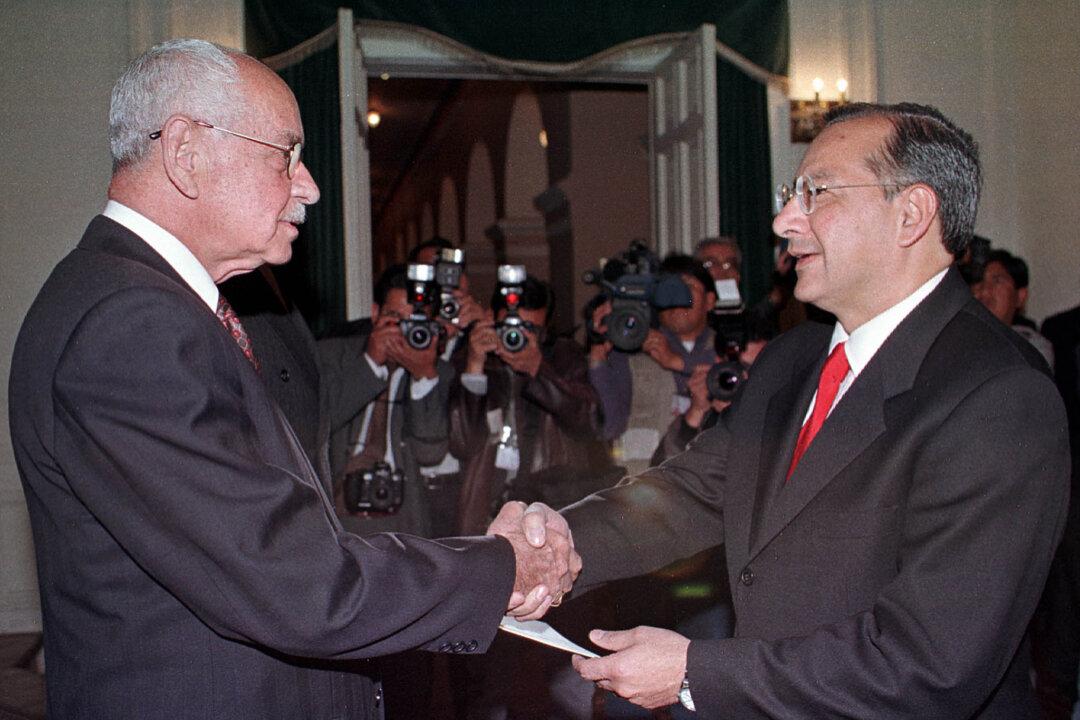A retired U.S. Department of State employee who served on the National Security Council and as an ambassador has been arrested for committing multiple federal crimes after allegedly acting as an agent of the Cuban regime for decades.
According to the Justice Department, federal prosecutors charged the former U.S. diplomat Victor Manuel Rocha, 73, of Miami, Florida, with three primary federal offenses: conspiring to act as an agent of a foreign government without prior notification to the Attorney General, acting as an agent of a foreign government without prior notification to the Attorney General, and with using a passport obtained by false statement.





